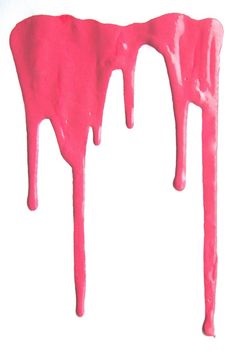 Watchdogging
Watchdogging  In the Doghouse
In the Doghouse  Binge Pink: Keeping Alcohol Away from Breast Cancer Charities
Binge Pink: Keeping Alcohol Away from Breast Cancer CharitiesBinge Pink: Keeping Alcohol Away from Breast Cancer Charities
 Breast cancer threatens the health of millions of women worldwide, and the pink ribbon is widely recognized as a symbol of hope, awareness, and action. This has resulted in an “all hands on deck” mentality, where any offer of support is welcome as part of charity events and campaigns. Many fundraising events, however, rely on alcohol as an inducement (or even raison d’etre) despite the substantial role drinking plays in exacerbated the risk of breast cancer.
Breast cancer threatens the health of millions of women worldwide, and the pink ribbon is widely recognized as a symbol of hope, awareness, and action. This has resulted in an “all hands on deck” mentality, where any offer of support is welcome as part of charity events and campaigns. Many fundraising events, however, rely on alcohol as an inducement (or even raison d’etre) despite the substantial role drinking plays in exacerbated the risk of breast cancer.
Although the events themselves have their hearts in the right place, the alcohol industry's eager participation creates real problems. San Francisco-based watchdog group Breast Cancer Action has coined the term "pinkwashing" to describe a company or organization that claims to care about breast cancer by promoting a pink ribbon product, but at the same time sells products that are linked to the disease. “Any company can put a pink ribbon on its products," said Karuna Jaggar, Executive Director of Breast Cancer Action. "The widely recognized pink ribbon symbol is not regulated by any agency and does not necessarily mean it effectively combats the breast cancer epidemic. In fact, many companies sell pink ribbon products that are linked to increased risk of breast cancer.”
Alcohol Justice has already detailed the industry's widespread complicity in pinkwashing tactics, wherein companies use breast cancer awareness to receive significant marketing exposure, celebrate alcohol use, and directly target their products at young women—heedless of the carcinogenic consequences of drinking. These problems are compounded when the alcohol industry sponsors, piggybacks on, or serves as the focus of other organizations' pink ribbon events. Through in-kind donations, open bars, drinking festivals, and other forms of sponsorship, alcohol companies don’t just promote their product, they promote the idea that greater consumption is a social good regardless of the cancer-causing effects of frequent drinking.
"Cancer charities need to reconsider any marketing partnerships and sponsorship relationships with alcohol brands," said Alcohol Justice Executive Director/CEO Bruce Lee Livingston. "It's exploitative and disrespectful for these brands to benefit in sales and exposure when they are making the problem worse."
According to the American Cancer Society, women who have two or more drinks per day have a 50% increase in their risk of breast cancer. For attendees to justify the admission price for beer festivals and open bar events—which can run $50 or more—they will have to consume much more than two drinks.
As the pink ribbon becomes more and more prevalent in the philanthropic landscape, it creates more potential for these kinds of self-defeating actions. Breast Cancer Action established the Think Before You Pink website to provide guidelines for evaluating breast cancer charities, partners, and events. Among other axioms, they advise consumers to ask themselves, “Does this purchase put you or someone you love at risk for exposure to toxins linked to breast cancer?” With alcohol in general—and frequent or binge drinking in particular—the answer is an unqualified yes.
This is not to preclude all beer or spirits companies from engaging in social responsibility surrounding breast cancer. However, these companies need to limit themselves to unrestricted cash contributions and keep their logos out of materials linked to the causes they are supporting. Considering the messaging, the risks, and the importance of combating breast cancer, these events should celebrate life, perseverance, and hope, not binge drinking.
Mr. Livingston presented on pinkwashing as part of the 2016 Wisconsin Alcohol Policy Seminar on October 20th, 2016. The slides from his presentation are available here.
Help us hold Big Alcohol accountable for the harm its products cause.
| GET ACTION ALERTS AND eNEWS |
STAY CONNECTED    |
CONTACT US 24 Belvedere St. San Rafael, CA 94901 415-456-5692 |
SUPPORT US Terms of Service & Privacy Policy |

